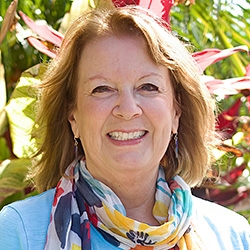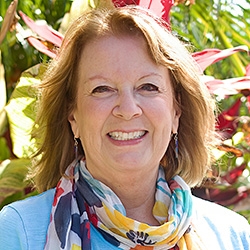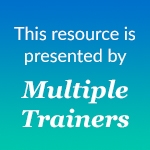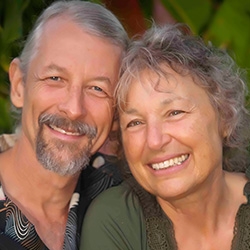

Search Results: presence
-
Join Jim and Jori Manske in a thought experiment exercise designed to help us become more aware of our conditioning, allowing us to make more conscious and connected choices in the face of conflict.
-
If you’re interested in improving your relationships, advancing in your career, or enhancing your capacity for change in life in general, communication is a powerful lever. Presence, listening, bringing curiosity and care, focusing on what matters, and pausing with silence, are all key. Read on for five foundational and advanced core practices you can start using today to improve your communication.
-
This exercise brings forth presence, awareness, and witnessing regarding what you observe. And also the inner form of experiencing: thinking, feeling, sensing, longing, and noticing any inner resistance. This exercise is designed to allow self-compassion to clear the inner space, and to help you feel it as a flow of energy, presence to the other, and bring in a more relaxed experience and more availability to vulnerability.
-
In moments where we would like to see change, personal growth or spiritual transformation, rather than immediately acting to make a change, Robert suggests we practice unconditional self-acceptance through a spacious presence to our inner experience. Robert asks us to give our attention and spacious awareness to our own judgments, inner contractions, and other experiences we often regard as undesirable.
-
- Cultivate thriving interpersonal relationships
- Discover paths to move beyond anger, blame, and judgment
- Connect with the Divine essence in other people
- Experience greater ease and joy in all your interactions
-
Trainer Tip: Use conflict with others as a way to learn more about yourself.
-
Rita Herzog shares how to stay true to your needs while extending empathy in family relationships.
-
Ask the Trainer: Exploring how unconscious motivations influence the needs we identify and express.
-
Build the capacity to choose vulnerability, deepen connection, and live with authenticity.
-
Miki speaks to peace activists about connecting with the life vision in those who stimulate pain.
-
Miki Kashtan shows how translating judgments into needs transforms family conflict and connection.
-
Inbal Kashtan highlights how self-empathy fosters caring, supportive relationships with children.
-
Kathleen Macferran guides you to bring NVC into daily life and break old patterns.
-
Ask the Trainer: My question is about wanting to empathize more with my husband. Sometimes we connect very deeply, other times he slips back into "jackal talk..."
-
Ingrid guides parents to navigate everyday parenting challenges using the NVC model, such as the behavior of a frustrated child, a messy room, transition times and a child who collapses when things don't work out as she had hoped.
-
Listen to this audio to learn the value of focusing on needs in an NVC model, either for the first time or as a refresher course. Living from a needs-consciousness creates abundance, clarity and choice. Using three examples from participants, Mary guides the group towards identifying and then connecting with the needs of both parties involved in each situation. It becomes clear very quickly that people choose different ways to support their needs; and many times they have the same needs in a given situation. When we understand this, we are able to create peace in our relationships and negotiations.
“Everything someone does or says is an attempt to meet a need,” says CNVC Certified Trainer Mary Mackenzie. This simple statement is a foundational understanding in Nonviolent Communication; once you gain skills at living in a “needs-consciousness” you will literally change your life and your perception of the world, and improve all of your relationships.
-
In this inspiring interview, Wes Taylor relays a story of how Nonviolent Communication is successfully used in law enforcement, and some of his challenges and joys in infusing Nonviolent Communication into a Maryland hospital culture.
-
Join CNVC Certified Trainers Inbal Kashtan and Roxy Manning, for a passionate and intimate exploration of how NVC can support personal and social transformation in the area of power relations and social divisions.
-
Experience the remarkable healing power of self-empathy, guided by CNVC Certified Trainers, Mary Mackenzie and Raj Gill. In this audio course, the trainers lead participants through a demonstration, and then supplement the learning with discussion and answers to questions.
-
Jim Manske shares a four-step self-empathy practice that ends with a focus on gratitude.

Quick Links
Subscription Preferences
Stay In Touch!
Looking for ways to keep up with NVC Academy news, get special offers, free resources, or words of inspiration? Here are five ways to stay engaged:


















